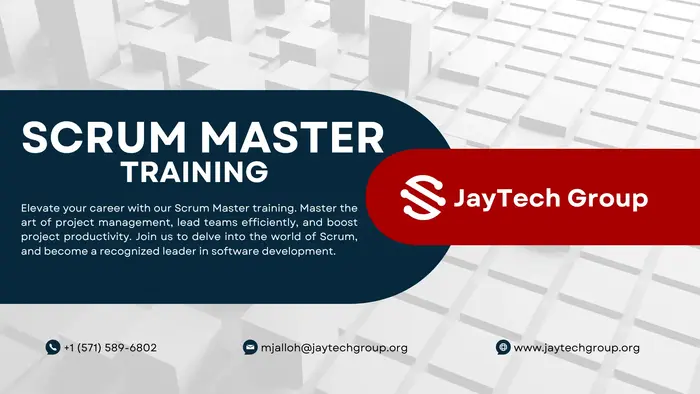Project Management Professional Certification
Select Date & Time
Your Reservation
{service_name}
{reservation_date} · {reservation_time}
Location
{location_name}Clients
{reservation_capacity}
Employee
{employee_name}Price
{reservation_price}
Your cart is empty.
Total: $0
What are the prerequisites for taking this PMP Training?
No prior knowledge or experience is required to enroll in Jay online PMP training. It is a strategic step towards acquiring the essential 35 Contact Hours of Formal Project Management Education. Successful completion of this training is a prerequisite for PMP certification online. To qualify for the exam you are required to meet one of the following criteria:
A secondary degree (high school diploma or the international equivalent) with at least 7,500 hours of experience leading and directing projects, along with 35 hours of project management education.
OR
A four-year degree (bachelor’s or the global equivalent) accompanied by a minimum of 4,500 hours of experience leading and directing projects, along with 35 hours of project management education.
What is the PMP certification exam pattern?
Here’s a quick breakdown of the exam:
- Total PMP Certification Exam Questions: 180
- Scored Questions: 175
- Pretest (Unscored) Questions: 5
- Allotted Time for the Exam: 230 Minutes
- A combination of multiple-choice, multiple responses, matching, hotspot, and limited fill-in-the-blank questions
- The questions fall into three domains: People Domain 42%, Process Domain 50% and Business Domain 8%.
How are the trainers for the PMP courses chosen and who are they?
JayTech strives to ensure that its trainers possess comprehensive knowledge of the subject matter and can deliver high-quality PMP courses. The trainers for the PMP online certification training are selected through a rigorous process that evaluates their expertise, experience, and qualifications in project management.
-
Module 1: Introduction to PMP Certification and Project Management
- Objective: Provide an overview of PMP Certification, eligibility criteria, and the benefits.
- Topics:
- Introduction to PMI (Project Management Institute) and PMP certification.
- Project Management Basics: Definition, key terms, and concepts.
- Exam overview, study tips, and resources.
- Code of Ethics and Professional Conduct.
Module 2: Project Management Framework and Environment
- Objective: Understand the foundational framework and environment of project management.
- Topics:
- Overview of project management processes and knowledge areas.
- Organizational influences and project life cycle.
- Role of the project manager.
Module 3: Process Groups and Knowledge Areas
- Objective: Master the five process groups and ten knowledge areas.
- Topics:
- Initiating, Planning, Executing, Monitoring & Controlling, and Closing.
- Deep dive into the 10 knowledge areas (Integration, Scope, Schedule, Cost, Quality, Resource, Communication, Risk, Procurement, and Stakeholder Management).
- Hands-on exercises for each process group.
Module 4: Project Integration Management
- Objective: Understand how to integrate all project elements effectively.
- Topics:
- Develop project charter and project management plan.
- Direct and manage project work.
- Monitor and control project work.
- Perform integrated change control.
Module 5: Scope, Schedule, and Cost Management
- Objective: Gain in-depth knowledge of planning, defining, and managing scope, schedule, and budget.
- Topics:
- Collecting requirements and defining scope.
- Creating a Work Breakdown Structure (WBS).
- Schedule Management: Define, sequence, and estimate activities.
- Cost Management: Estimating, budgeting, and controlling costs.
Module 6: Quality, Resource, and Communication Management
- Objective: Focus on maintaining quality, managing resources, and communication.
- Topics:
- Quality Planning, Assurance, and Control.
- Resource Management: Planning, estimating, and acquiring resources.
- Communication planning and stakeholder engagement.
Module 7: Risk Management
- Objective: Understand risk identification, assessment, and response planning.
- Topics:
- Planning risk management.
- Identifying, analyzing, and prioritizing risks.
- Risk response strategies and risk monitoring.
Module 8: Procurement and Stakeholder Management
- Objective: Manage external vendors and stakeholder engagement.
- Topics:
- Procurement Planning and Management.
- Contract types and vendor selection.
- Stakeholder identification, analysis, and engagement strategies.
Module 9: Mock Exam and Review Sessions
- Objective: Prepare students with exam simulations and review sessions.
- Activities:
- Full-length mock exams and time management tips.
- Group discussions and clarification of complex topics.
- Tips on managing exam anxiety and strategies for answering questions.
Final Module: Capstone Project
- Objective: Allow students to apply what they’ve learned in a practical project setting.
- Activities:
- Select a project scenario and go through all project phases.
- Documentation and presentation of a project management plan.
- Peer review and feedback.
We’re proud to help countless students secure positions at leading companies like these.


Student Enroll
Graduate
Experts
%



